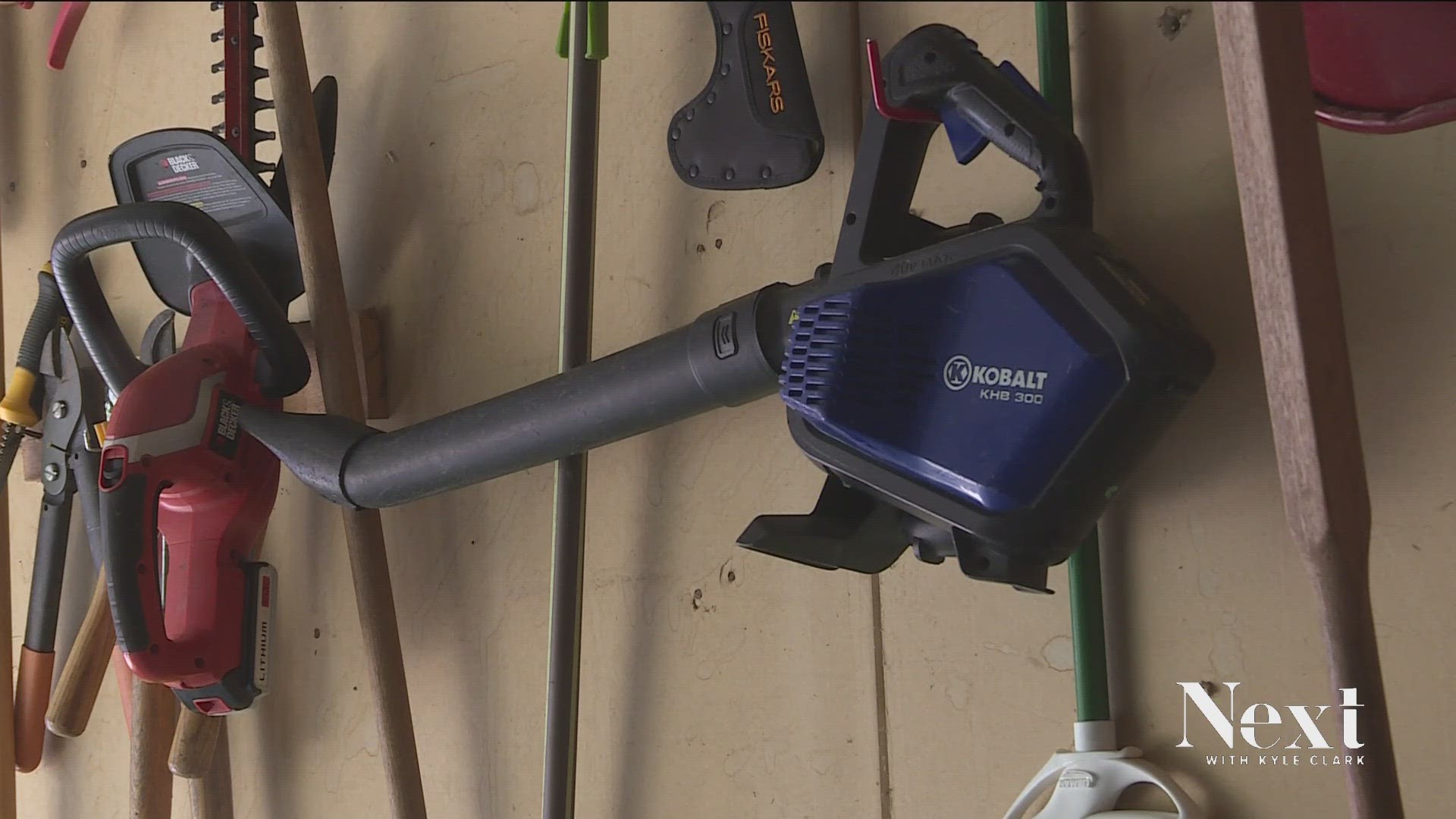DENVER — Colorado's Democratic Governor Jared Polis signed an executive order this week, requiring the state to upgrade its stockpile of gas-powered lawn equipment to electric.
The move comes as a regional body voted earlier this summer to recommend a new policy for counties in the Front Range impacted by air quality. It would ban the sale of gas-powered leaf blowers, grass trimmers, edgers and other small equipment that contributes to ozone issues during hot summer months.
“Using a gas-powered handheld leaf blower for an hour is the same as driving your car from Denver to Los Angeles,” said Mike Foote, former state senator and now the chair of the Regional Air Quality Council (RAQC).
Foote’s board sent a draft policy to state regulators this summer that would ban the sale of such equipment in much of the metro area where the state’s Air Quality Control Commission (AQCC) deemed an “ozone nonattainment area.” The state’s AQCC will likely vote on the policy later this month and if passed, draft rules by the end of the year.
The RAQC’s draft would also ban local governments from using gas-powered equipment during the months of June, July and August by 2025. Commercial entities would have to stop during the same time period in 2026.
The proposal doesn’t ban the use of such gas-powered equipment by individuals. But the state offers tax credits to Coloradans who make the switch and the RAQC offers incentives to help people buy the equipment.
“There are incentives available,” Foote said. “Often times we see that incentives as well as regulation are needed – both of those are typically needed in order to encourage change.”
John McMahon with the Associated Lanscape Contractors of Colorado said most landscapers want to make the switch to electric to help clean up the air, but that the timeframe of this change will lead to costly upgrades that will be expensive for some small businesses.
“It’s not just the equipment it’s the infrastructure that goes behind it,” he said. “So, say for example you equip your trucks with rechargers… you know there’s significant costs to that and you know the technology isn’t 100 percent there… let’s remember this is fairly new in the scope of small engines.”
McMahon said estimates from the contractors he represents found it could cost as much as $17,000 to $34,000 per landscaping truck to replace equipment and pay for enough batteries to last through a day of work.
“The right way to do it is to do it thoughtfully,” he said. “Create the benchmarks. Know that we have production manufacturing…servicing of the equipment because right now it’s limited to only a few people and make sure we have the incentives in place, so this doesn’t have the draconian impacts it does now.”
More from Steve Staeger:
SUGGESTED VIDEOS: Next with Kyle Clark

